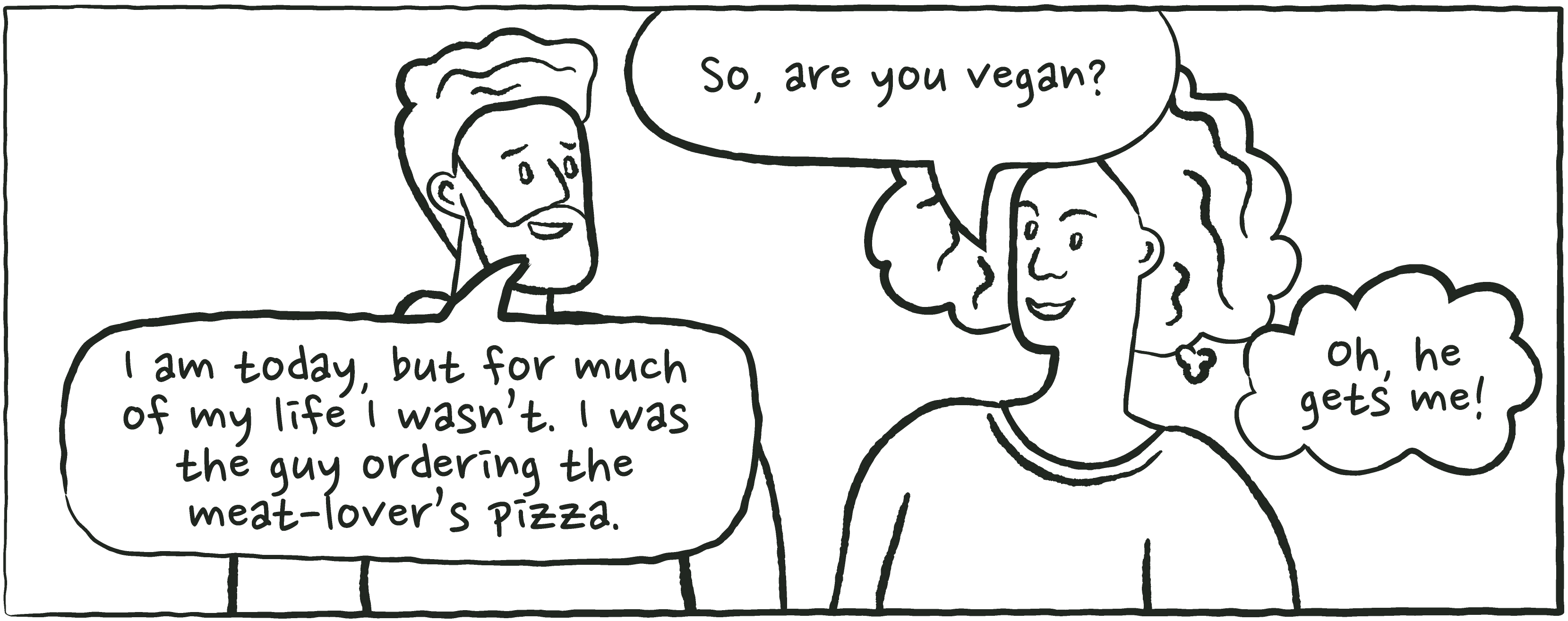When I talk about veganism, people get defensive and call me “preachy”
Sometimes, just mentioning that we are vegan is enough to trigger a defensive reaction in a nonvegan. And when we simply share a couple of facts about the benefits of veganism, we may be labeled a “preachy vegan.”
So why does the topic of veganism so often trigger defensiveness, and what can we do about it?

Why are defensive reactions so common?
Carnism can cause nonvegans to react defensively when veganism is discussed. One example of a defensive reaction is shooting the messenger, such as when a nonvegan calls a vegan “preachy.” When we shoot the messenger, we don’t have to take the implications of their message seriously.
It’s also common for vegans to hear derogatory jokes that attack their beliefs or character, often in front of others. Such jokes can be anything from “moo” sounds made when a steak is served to being called a “Bambi-lover.” And if the vegan doesn’t laugh, they’re seen as not having a sense of humor, which reinforces the negative stereotype of the holier-than-thou vegan.
Being on the receiving end of defensiveness can be frustrating, exhausting, and upsetting. The good news is there are ways that we can effectively reduce defensiveness and respond to it when it does occur.

Highlight common ground
An effective way to reduce defensiveness in nonvegans is to create a sense of connection with them. Think about it: the more connected you feel to a person, the more open you probably are to the ideas they’re sharing. And one way to create connection is to highlight common ground.
Unless we were raised vegan, most of us have eaten meat, eggs, or dairy at some point in our lives. So, when we’re relating with a nonvegan we have a shared experience of carnism in common. But often, after we become vegan, we forget what it was like not to be vegan. To reduce defensiveness and increase connection, think about ways you can share your own carnism—such as the following example:

Once you’ve established common ground and created a sense of connection, it’s more likely that you’ll be able to have productive conversations about veganism.

Request respect
It might not be possible to avoid defensive comments about veganism entirely, so it’s helpful to be prepared to request respect when necessary.
We can explain to the nonvegan that we’re not asking them to become vegan—we just want to be able to interact with them in a way that feels comfortable. And in order for that to happen, we need to feel that we’re respected, which includes respecting our choice to be vegan. To help the nonvegans in your life see the world through your eyes show them this video.

Avoid shaming nonvegans
While defensiveness is often caused by carnism, a nonvegan may also react defensively when they feel shamed by a vegan. To learn more about why shaming approaches are counterproductive and cause defensiveness, check out this video.